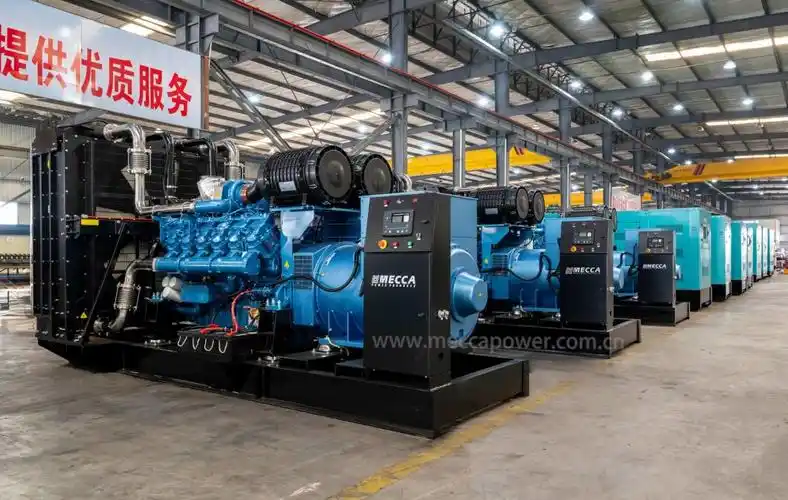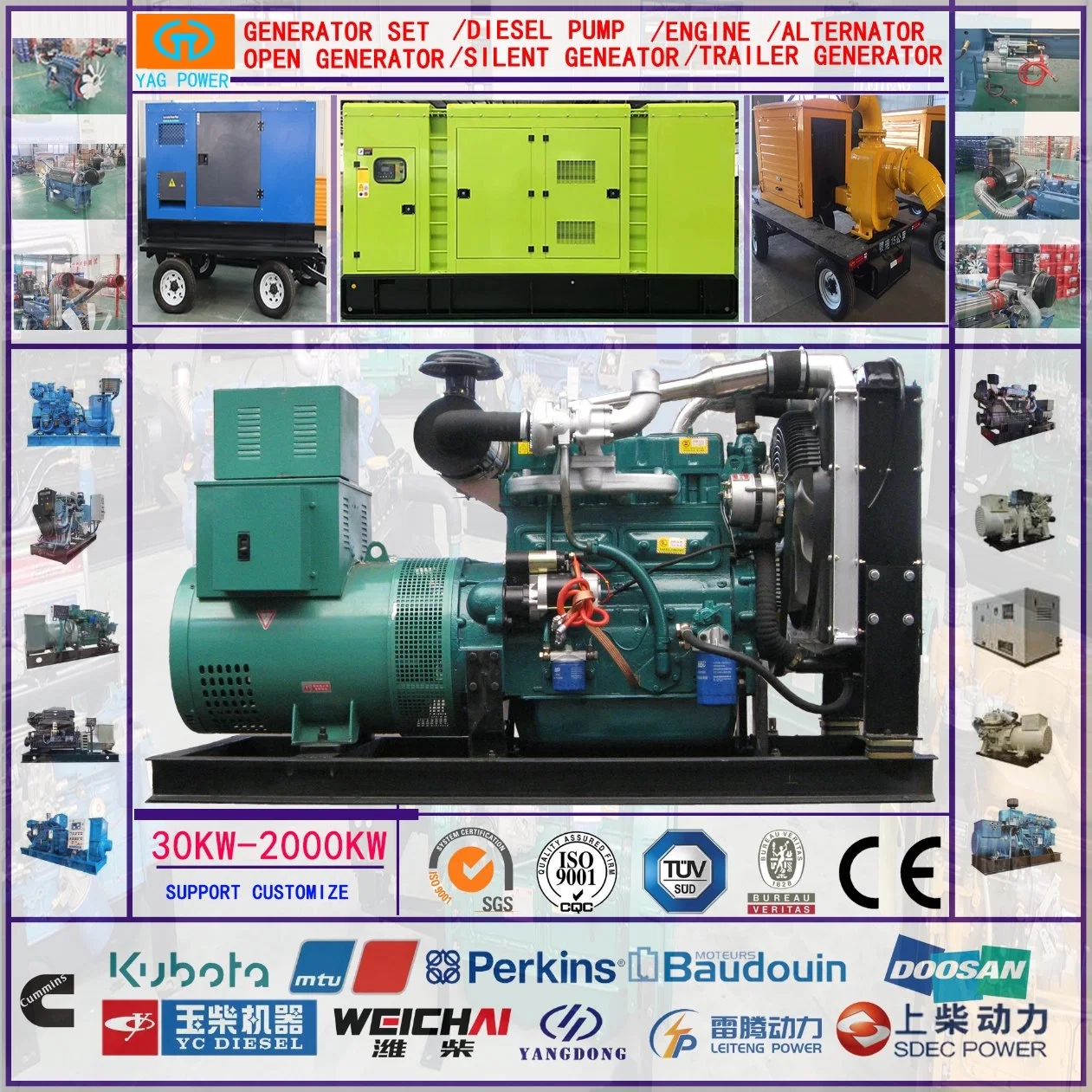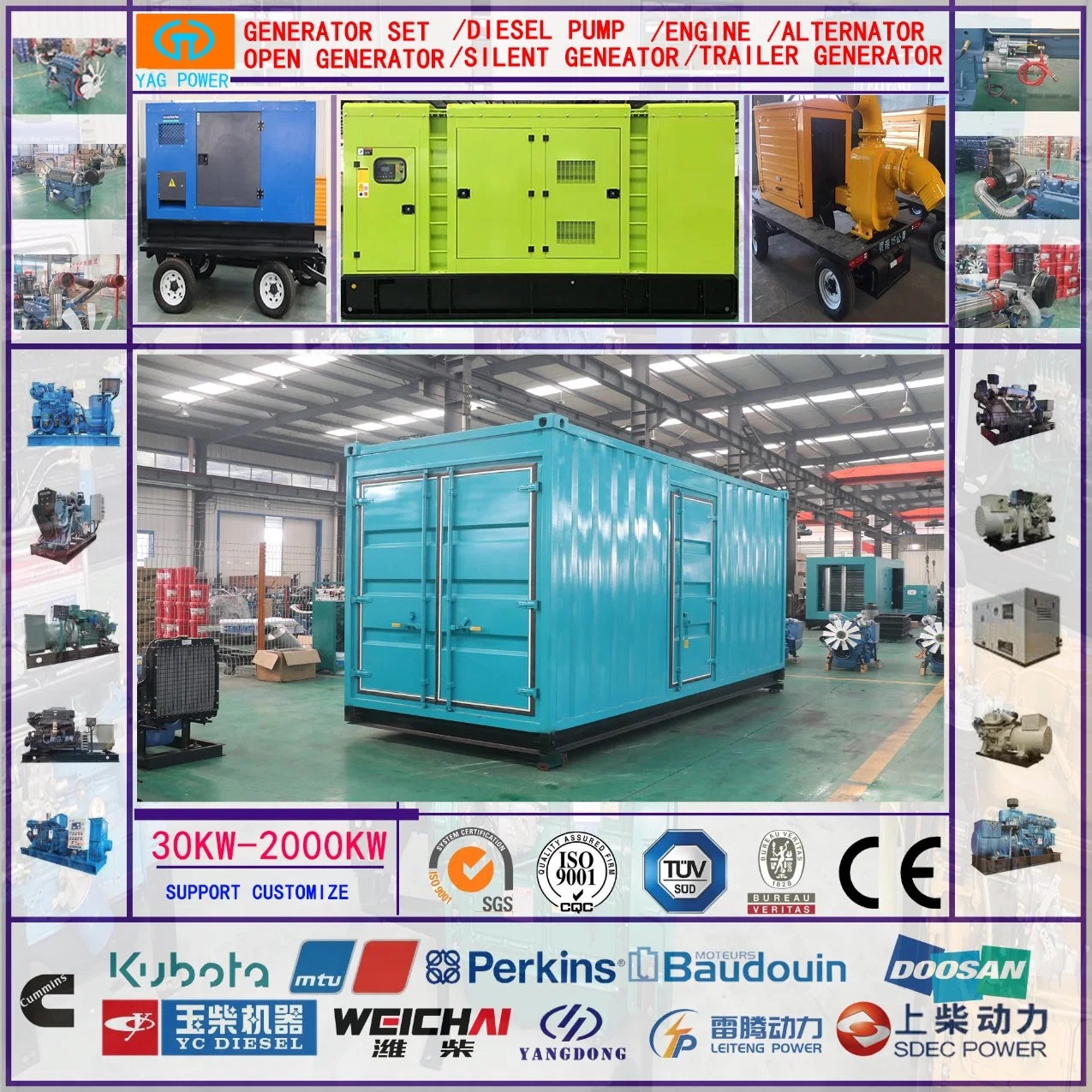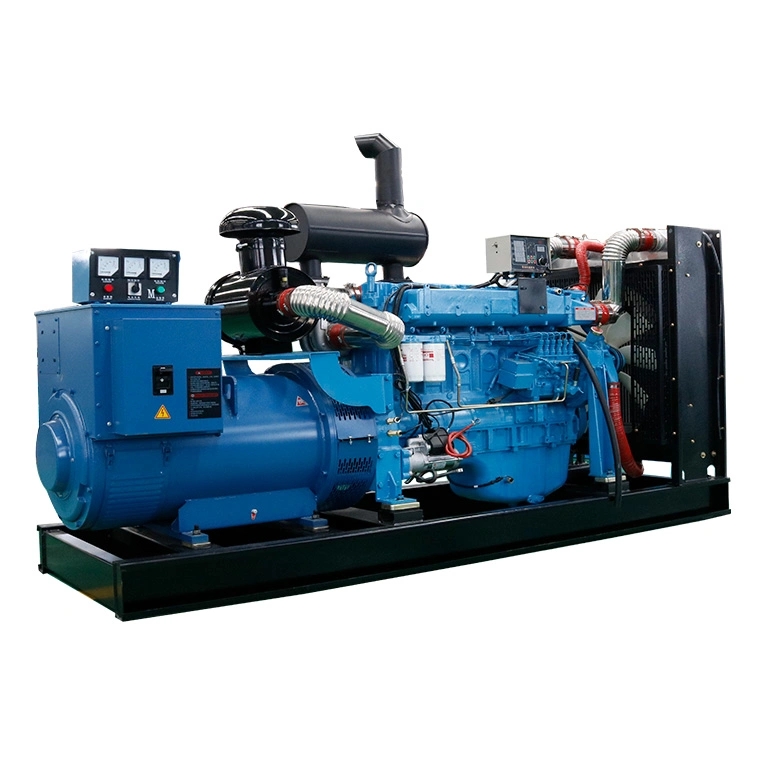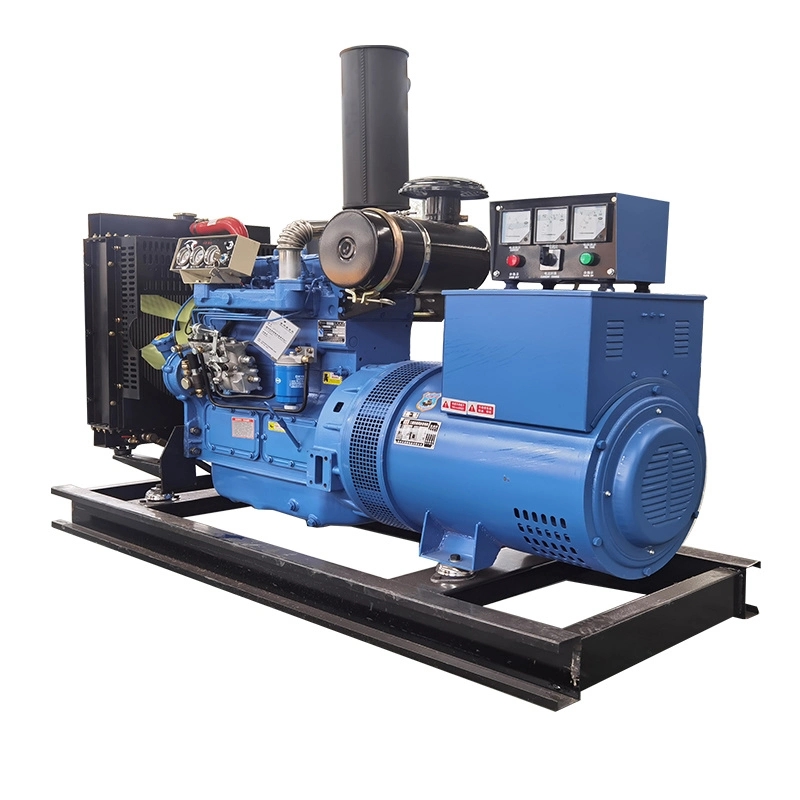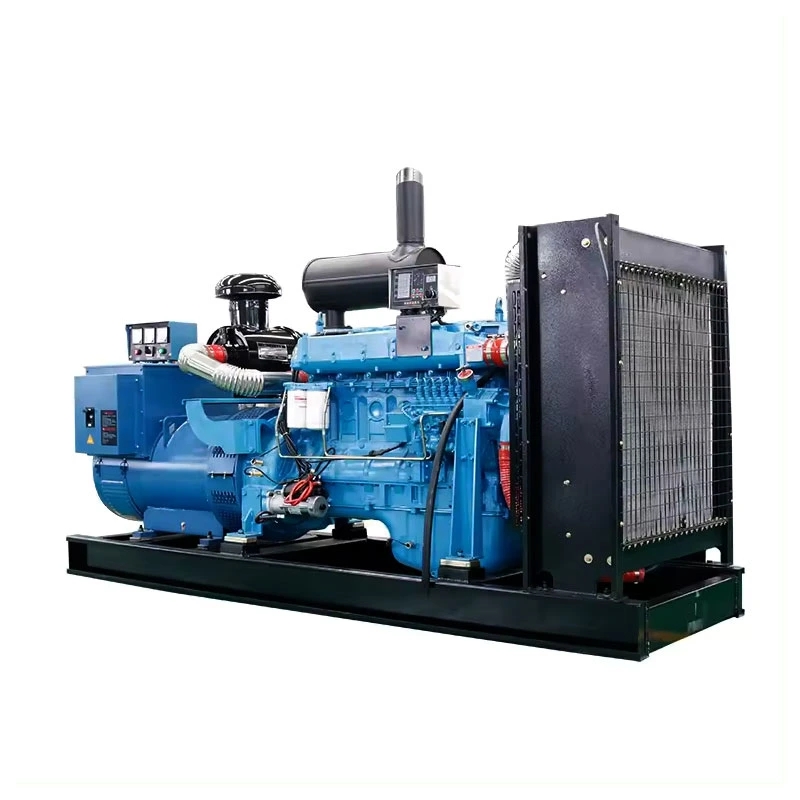Table of Contents
ToggleIntroduction
Hey there! If you’ve found yourself in the market for a generator, you might have stumbled across the term “50kW diesel generator.” But what exactly is it, and why should you care? Well, buckle up, because we’re about to dive into the world of diesel generators and explore everything you need to know about this powerhouse. From understanding its core components to appreciating its versatility across various applications, this guide aims to make you a savvy generator guru.
What is a 50kW Diesel Generator?
Imagine you’re on a camping trip, and you need a reliable source of power to keep your gadgets running—now multiply that need by several hundred times. A 50kW diesel generator is your answer. At its core, this generator is a machine designed to provide a substantial amount of electrical power, 50 kilowatts to be exact. It’s powered by diesel fuel, known for its efficiency and robustness. Think of it as the workhorse of electricity generation, ready to step in whenever the grid lets you down.
Diesel engines have a rich history of being used in settings that require reliability and power. They have been the backbone of industries ranging from transportation to heavy machinery. In a generator, this power translates into a reliable source of electricity that can be used in various settings, from industrial complexes to residential homes.
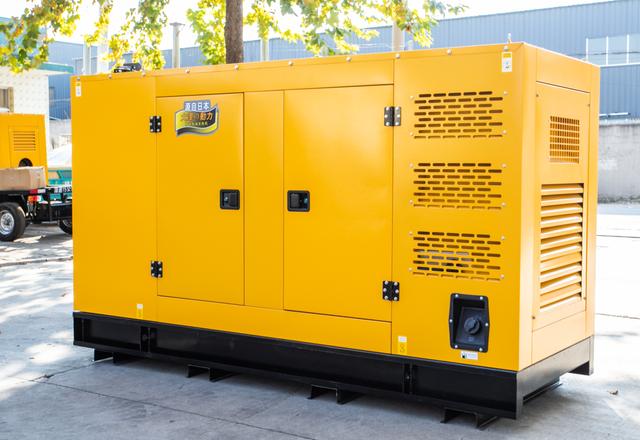
Benefits of Using a 50kW Diesel Generator
Reliability and Efficiency
When it comes to reliability, diesel generators are like that friend who’s always there when you need them. They’re built to last and can handle heavy loads without breaking a sweat. Plus, diesel engines are renowned for their efficiency, meaning they can produce more power with less fuel compared to their gasoline counterparts. This efficiency is not just a matter of fuel consumption; it’s about the generator’s ability to run for extended periods without needing a break, which is crucial during prolonged power outages.
Cost-Effectiveness
Now, let’s talk money. While the upfront cost of a diesel generator might seem steep, think of it as an investment. Over time, their fuel efficiency and durability save you money on operational costs. It’s like buying a quality pair of shoes that last years instead of cheap ones that fall apart after a few months. The cost-per-kilowatt-hour of electricity generated by diesel is often lower than other fuels, which means you’ll be saving in the long run. Moreover, diesel fuel tends to be more stable and safer to store than gasoline, further adding to its cost-effectiveness.
Versatility
A 50kW diesel generator isn’t just for one specific use; it’s a jack-of-all-trades. Whether you’re powering a construction site, a small business, or even a large home during a power outage, this generator has got you covered. Its versatility is one of its biggest selling points, making it suitable for a wide range of applications. Need to run heavy-duty equipment? Check. Want to keep your house warm during a winter storm? No problem. The adaptability of these generators is like having a Swiss Army knife for power generation.
Key Features to Look For
Power Output
When choosing a generator, power output is king. A 50kW generator offers a solid balance of power, enough to run multiple devices or systems simultaneously without overloading. It’s like having the perfect-sized pizza—enough to satisfy everyone without leaving anyone hungry. The power output is crucial, especially if you plan to use the generator for industrial purposes or in scenarios where multiple high-demand devices will be running at once.
Understanding your power needs is essential. Make a list of all the devices you plan to power with the generator and their wattage requirements. This will help you ensure that a 50kW generator is suitable for your needs and prevent any unpleasant surprises.
Fuel Efficiency
Fuel efficiency is another crucial feature. Diesel generators have a reputation for sipping rather than guzzling fuel, making them a cost-effective choice in the long run. You’ll be able to keep things running smoothly without constantly worrying about refueling. The technology behind diesel engines has evolved significantly over the years, with modern designs offering improved fuel combustion and reduced waste. This means not only are you saving money, but you’re also reducing your environmental footprint—a win-win scenario.
Noise Levels
Let’s face it: nobody wants a noisy generator. Thankfully, many modern 50kW diesel generators come with noise-reduction features. So, you can enjoy the benefits of backup power without feeling like you’re living next to an airport. Noise levels can be a critical factor, especially in residential areas or for businesses where a peaceful environment is crucial. Manufacturers have made strides in designing generators that run quieter, using advanced mufflers and insulation materials to dampen the sound.
Applications of 50kW Diesel Generators
Industrial Uses
In industrial settings, these generators are a lifeline. They can power machinery, lighting, and essential systems, ensuring that operations continue smoothly even when the unexpected happens. Think of them as the silent partners in production lines, ready to jump in and save the day when the main power fails. Industries such as manufacturing, mining, and agriculture rely heavily on diesel generators to maintain productivity and prevent costly downtimes.
Commercial Uses
For businesses, a 50kW generator can be a game-changer. From keeping the lights on in a retail store to powering essential equipment in a restaurant, the applications are vast and varied. The reliability of diesel generators ensures that businesses can continue to serve their customers, protect their inventory, and maintain their operations without interruption. This continuity is essential for customer satisfaction and financial stability.
Residential Uses
Even on the home front, a 50kW diesel generator can be invaluable. Whether it’s keeping the fridge running during a blackout or providing power for home office equipment, it’s a reliable backup plan. With the increasing frequency of extreme weather events, having a home generator can provide peace of mind and ensure that your daily life isn’t disrupted. A 50kW generator offers enough power to maintain essential household functions, making it an attractive option for homeowners looking to safeguard against power outages.
How to Choose the Right 50kW Diesel Generator
Choosing the right 50kW diesel generator can feel like trying to find the perfect pair of jeans—there are lots of options, and you want something that fits just right. But fear not, I’m here to guide you through the process.
Assessing Your Power Needs
Before you dive into the myriad options available, it’s crucial to assess your power needs. Consider what devices or systems you need to keep running during an outage. Are you powering essential household appliances, or do you have a business that requires specific equipment to remain operational? Make a list of everything you intend to power and their wattage requirements. This way, you can ensure that a 50kW generator will meet your needs without overloading. Think of it like meal planning for a big event—you want to make sure you’ve got enough to go around without running out.
Considering the Environment
The location where you’ll use the generator matters too. Consider factors like climate, available space, and noise restrictions when making your choice. For example, if you’re in a residential area, noise levels will be a significant consideration. You might want a model with noise reduction capabilities to keep the peace with your neighbors. Also, think about the physical space where the generator will be installed. You’ll need adequate ventilation and access for maintenance, so plan accordingly.
Evaluating Additional Features
Look for additional features that might enhance the generator’s usability and efficiency. Some models come with remote monitoring capabilities, allowing you to check the generator’s status from your smartphone. Others might offer automatic transfer switches, which seamlessly transition power supply from the grid to the generator in the event of an outage. These features can significantly enhance convenience and ensure you’re never caught off guard.
Installation and Maintenance Tips
Once you’ve chosen the perfect generator, the next step is ensuring it’s installed and maintained properly. This is where the rubber meets the road, and a little foresight can go a long way.
Proper Installation
Installing a generator isn’t just about plugging it in. It requires careful planning and often professional expertise to ensure it’s set up safely and efficiently. The installation process might involve creating a stable, level platform for the generator, ensuring proper ventilation, and connecting it to your electrical system. Hiring a professional electrician or technician can be a wise investment here, ensuring that everything is done according to code and without any hitches. Think of it like hiring a skilled chef to prepare a complex meal—you want it done right the first time.
Regular Maintenance
Like any machinery, regular maintenance is crucial. This includes checking fuel levels, oil changes, and routine inspections to keep your generator running smoothly. It’s akin to taking your car for regular service to prevent breakdowns. Set up a maintenance schedule that includes checking for leaks, cleaning air filters, and testing the generator under load. This proactive approach can prevent minor issues from turning into major problems, ensuring your generator is always ready to go when you need it.
Troubleshooting Common Issues
Even with regular maintenance, it’s good to be prepared for common issues that might arise, such as starting problems or unexpected shutdowns. Familiarize yourself with the generator’s manual, and consider keeping a troubleshooting guide handy. Often, issues can be resolved with simple fixes like battery checks or fuel line inspections. However, for more complex problems, don’t hesitate to reach out to a professional.
Environmental Impact
In today’s world, being mindful of the environmental impact of our choices is more important than ever. Diesel generators, while incredibly efficient, do have an impact on the environment. However, there are ways to mitigate this.
Emission Standards
Diesel generators have come a long way in terms of emissions. Many now meet stringent standards, reducing their environmental impact. It’s worth looking for models that prioritize eco-friendliness and comply with the latest regulations. These generators often come equipped with advanced exhaust systems and catalytic converters that help reduce harmful emissions. Think of it as choosing a cleaner, more efficient path forward—a way to enjoy the benefits of diesel power while minimizing your carbon footprint.
Sustainable Practices
Additionally, consider sustainable practices, like using biodiesel blends or installing emission control systems, to further reduce your carbon footprint. Biodiesel is a renewable, biodegradable fuel that can be used in diesel engines with little or no modification. It’s like adding a splash of green to your energy palette, helping reduce dependency on fossil fuels. Furthermore, regular maintenance and proper tuning can optimize your generator’s efficiency, ensuring it runs as cleanly as possible.
Conclusion
In conclusion, a 50kW diesel generator is a reliable, efficient, and versatile tool that can serve a wide range of needs. Whether you’re powering a business, a home, or an industrial site, it offers peace of mind and a steady supply of power when you need it most. From assessing your specific power needs to considering environmental impacts, this guide has hopefully provided you with the knowledge you need to make an informed decision. So, the next time the lights flicker, you know you’ve got a dependable backup ready to roll, ensuring life goes on without a hitch, no matter what Mother Nature throws your way.




